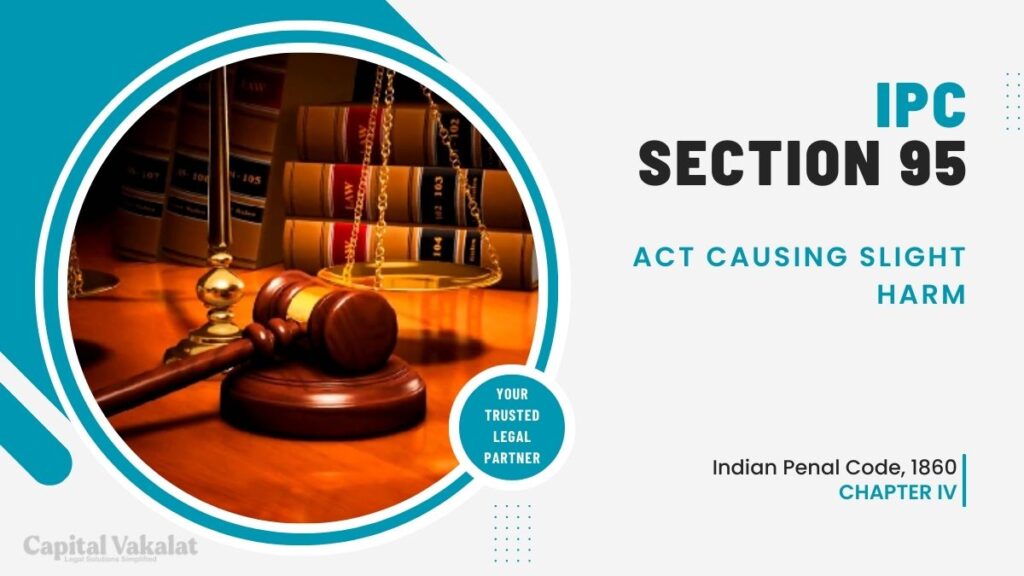In the realm of Indian Penal Code (IPC), Section 95 holds a significant position. This particular section deals with acts that cause slight harm. While it may seem like a minor legal provision, understanding its implications is crucial.

In this article, we will delve into Section 95 IPC, examining its nuances, legal consequences, and real-life scenarios where it comes into play.
Introduction to Section 95 IPC
Section 95 of the IPC serves as an exception to the general rule of criminal liability. It states that an act which causes slight harm and is done in good faith for the benefit of the person harmed or for the public at large is not an offense. This means that if an act, even if it results in slight harm, is performed with good intentions, it may not be considered a criminal act.
The Concept of ‘Good Faith’
To comprehend Section 95 better, it’s essential to grasp the concept of ‘good faith.’ Good faith refers to the honest and genuine intention to do what is right, without any ulterior motives or malice. In legal terms, an act is said to be done in good faith when it is done with a sense of responsibility and without any wrongful intent.
Acts Covered by Section 95
Section 95 IPC primarily covers acts that may result in slight harm. These acts could include medical procedures, actions taken in self-defense, or even accidents that occur during well-intentioned activities. The key element here is that the harm caused must be slight, and the act must be performed with a genuine desire to benefit someone or society.
Legal Consequences
One of the significant aspects of Section 95 IPC is that it offers protection to individuals who may have unintentionally caused harm while trying to help others. If it can be proven that the act was done in good faith and the harm caused was slight, the person may be exempt from criminal liability.
Real-Life Scenarios
Let’s explore some real-life scenarios where Section 95 IPC might be applicable:
Medical Professionals
Doctors and healthcare providers often perform procedures that carry some risk. If an unexpected complication arises during a medical procedure, but the doctor was genuinely trying to treat the patient, Section 95 may come into play.
Self-Defense
In cases of self-defense, individuals may unintentionally cause harm to an attacker while protecting themselves. If their actions are deemed reasonable and in good faith, they might be protected by Section 95.
Road Accidents
Accidents on the road can result in minor injuries. If the driver can prove that the accident occurred due to unforeseen circumstances and not due to negligence, they may find solace in Section 95.
Conclusion
In conclusion, Section 95 IPC provides a safeguard against criminal liability in cases where slight harm is caused unintentionally and in good faith. It’s a crucial legal provision that balances the scales of justice, ensuring that individuals acting with good intentions are not unduly punished for their actions.
FAQs
How does the law define ‘good faith’ in Section 95?
‘Good faith’ refers to an honest and genuine intention to do what is right, without any wrongful intent or malice.
Are all acts that cause slight harm covered by Section 95 IPC?
No, only acts performed in good faith for the benefit of others or society and resulting in slight harm are covered by Section 95.
What are some examples of situations where Section 95 might be applicable?
Section 95 could apply in cases involving medical procedures, self-defense, or accidents where slight harm is caused unintentionally.
How can one prove that an act was done in good faith under Section 95?
To prove ‘good faith,’ one must demonstrate that the act was performed with a sense of responsibility and without any wrongful intent or malice.